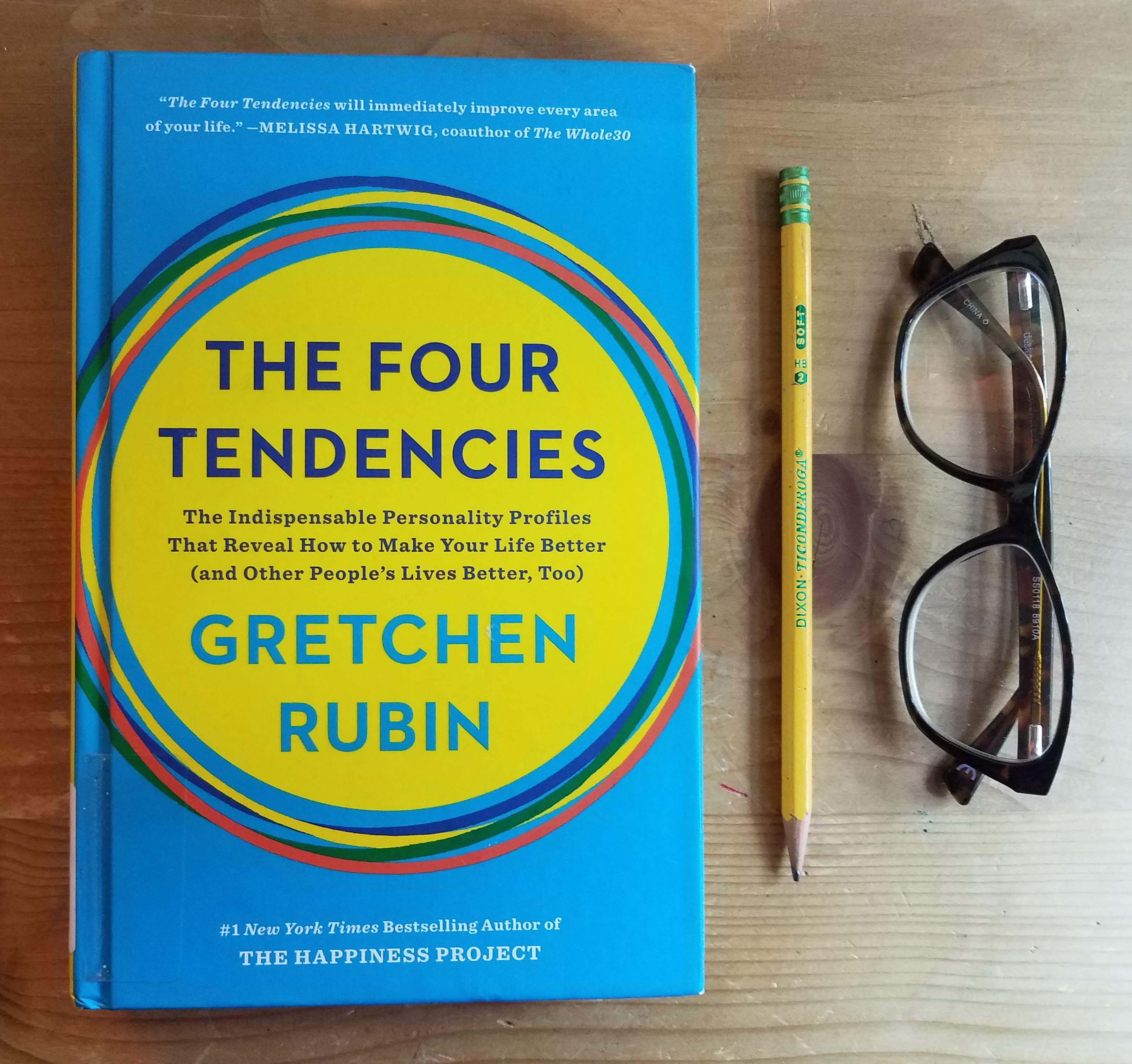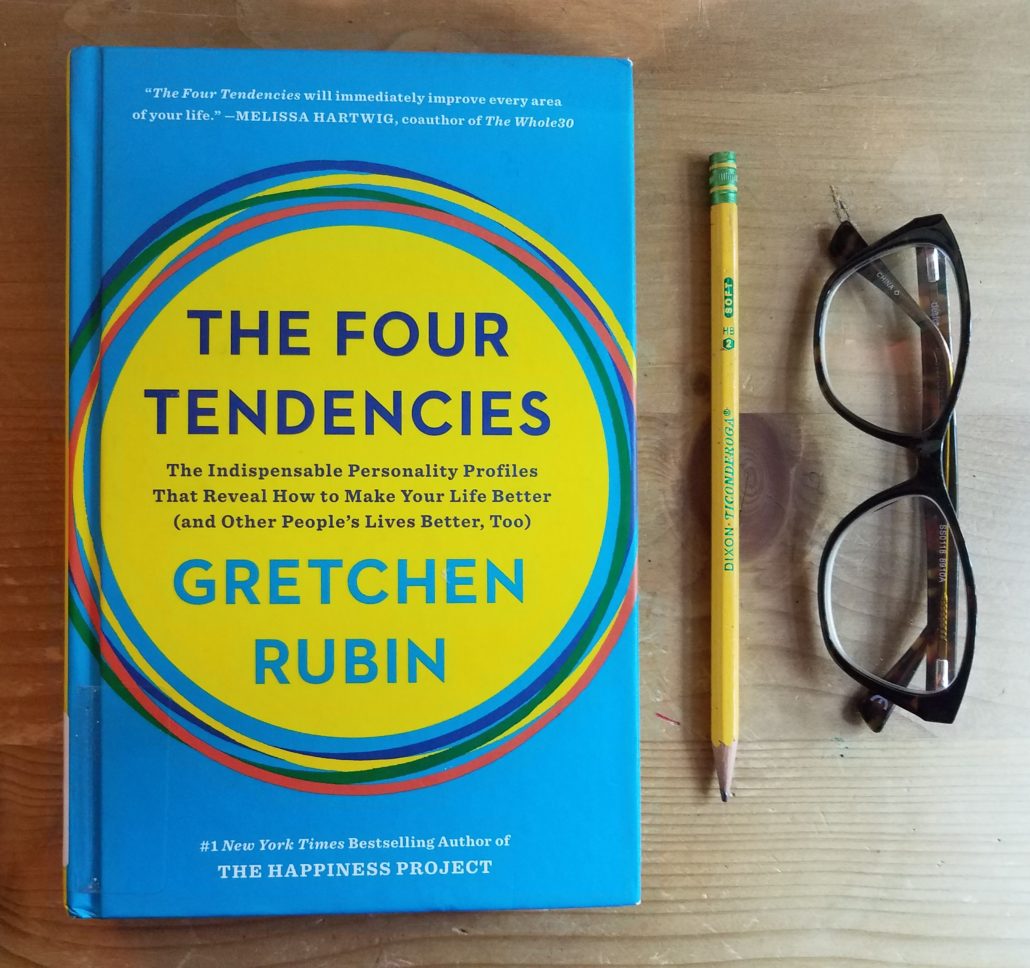
I discovered Gretchen Rubin after hearing her on Oprah’s SuperSoul Conversations podcast in the 8 Rules To Happiness episode.
She’s written a bunch of books — some New York Times bestsellers — and after hearing this podcast and then checking out her Facebook page, and I went right to the library and checked out The Four Tendencies.

This book was extremely eye opening for me.
And it helped me learn not only a lot about myself, but about why my husband, my kids, my relatives and my friends respond to expectations and function the way they do.
According to (affiliate) The Four Tendencies, people fall into four main personality types when it comes to behavior (or a combination of the two): questioners, upholders, obligers, and rebels.
I’ve discovered I’m an obliger/rebel.
And understanding why I do the things I do has helped me to change my eating habits, be more productive with work, and have more understanding and compassion both as a parent and in my marriage.
(To find out what type you fall into, you can take her free online quiz here).
In Rubin’s words:
Understanding the Four Tendencies makes it far easier to manage ourselves—and to get other people to do what we want! It illuminates the various perspectives people have, and the fact that we have to push different buttons to get different people to act.
Are you the kind of person who will follow through for friends but when it comes to following through for yourself you always drop the ball?
Do you have trouble getting stuff done without being accountable to other people?
Do you constantly find yourself questioning rules and having trouble understanding why you should follow them?
Are you filled with frustration when your spouse or your children just don’t see the light and do things your way?
If you have these questions, then The Four Tendencies will help you not only understand why other people behave the way they do and how you can more effectively communicate and interact with them.
When we consider the the Four Tendencies, we’re better able to understand ourselves. This self-knowledge is crucial because we can build a happy life only on the foundation of our own nature, our own interests, and our own values.
Just as important, when we consider the Four Tendencies, we’re better able to understand other people. WE can live and work more effectively withothgers when we identify their Tendencies — as coworkers,and bosses, teachers and coaches, husbands and wives, parents and children, health-care providers and patients.
Understanding the Four Tendencies gives us a richer understanding of the world.
If you feel strongly about improving any aspect of your life — your physical health, your emotional health, your relationships, your career — I highly recommend reading this book.
And when you do (or if you’ve already read the book), let me know what your Tendency is and what you’ve discovered about yourself. I think this stuff is super interesting!
Happy reading, and happy continued self-discovery!

Leave a Reply